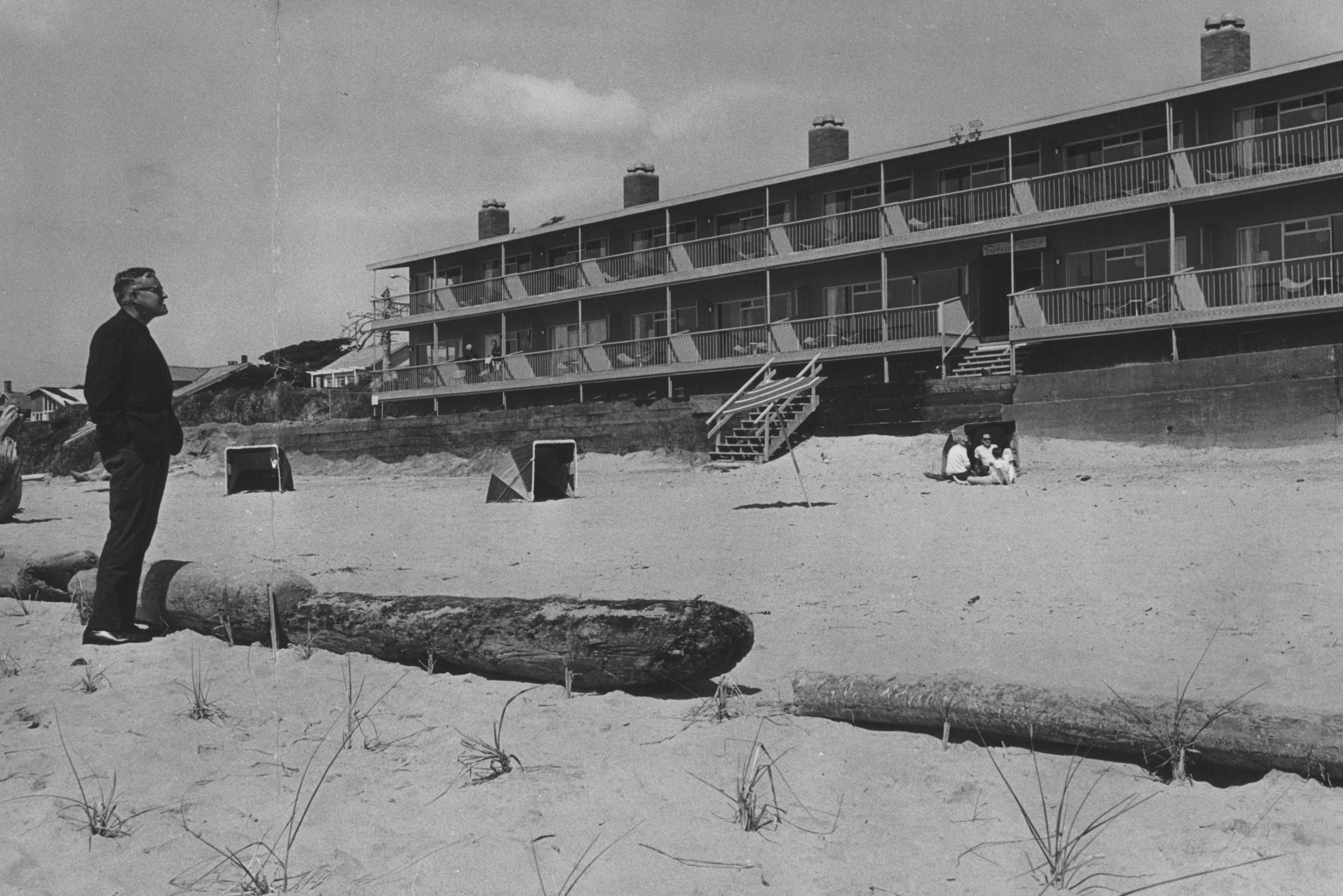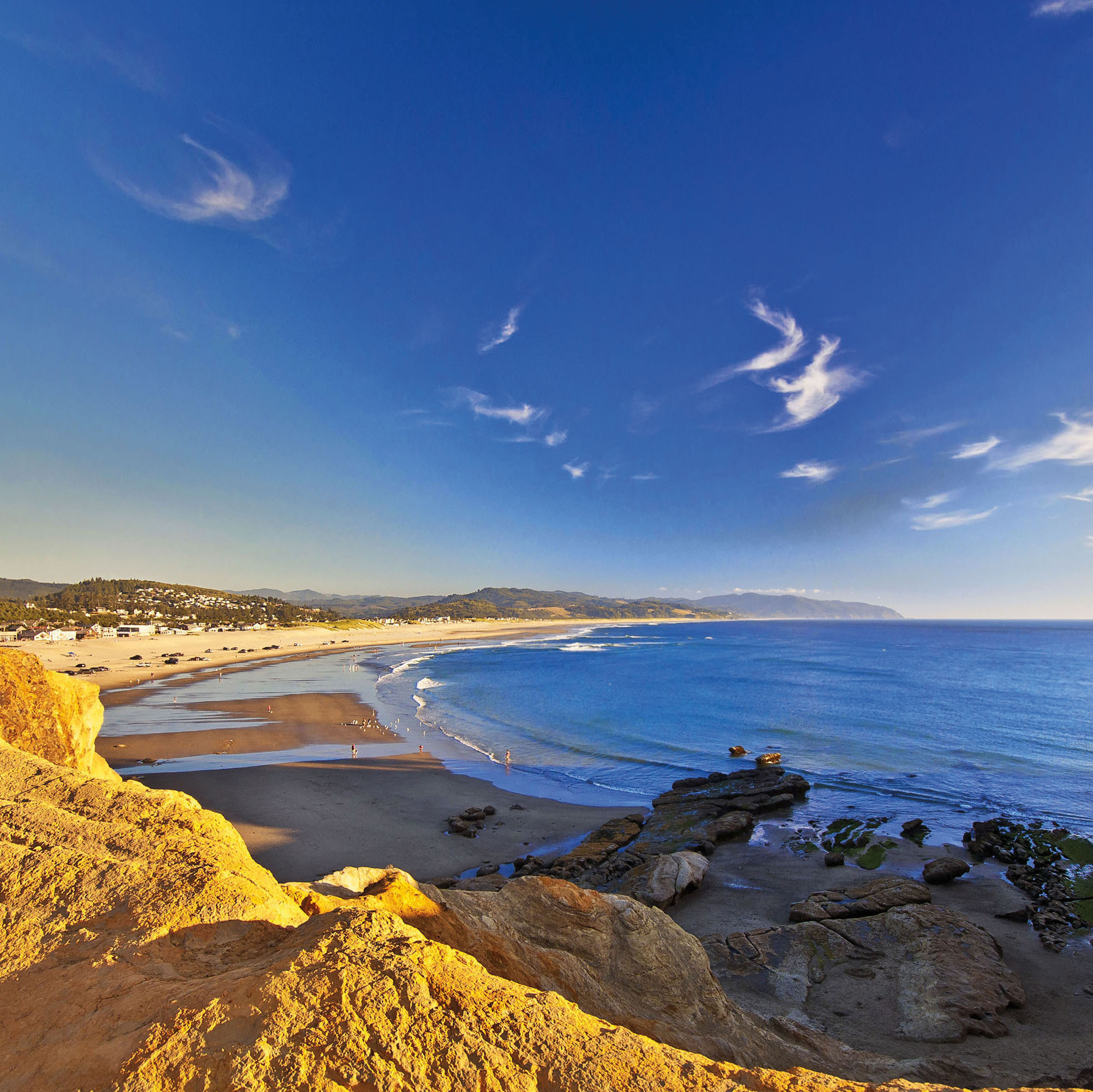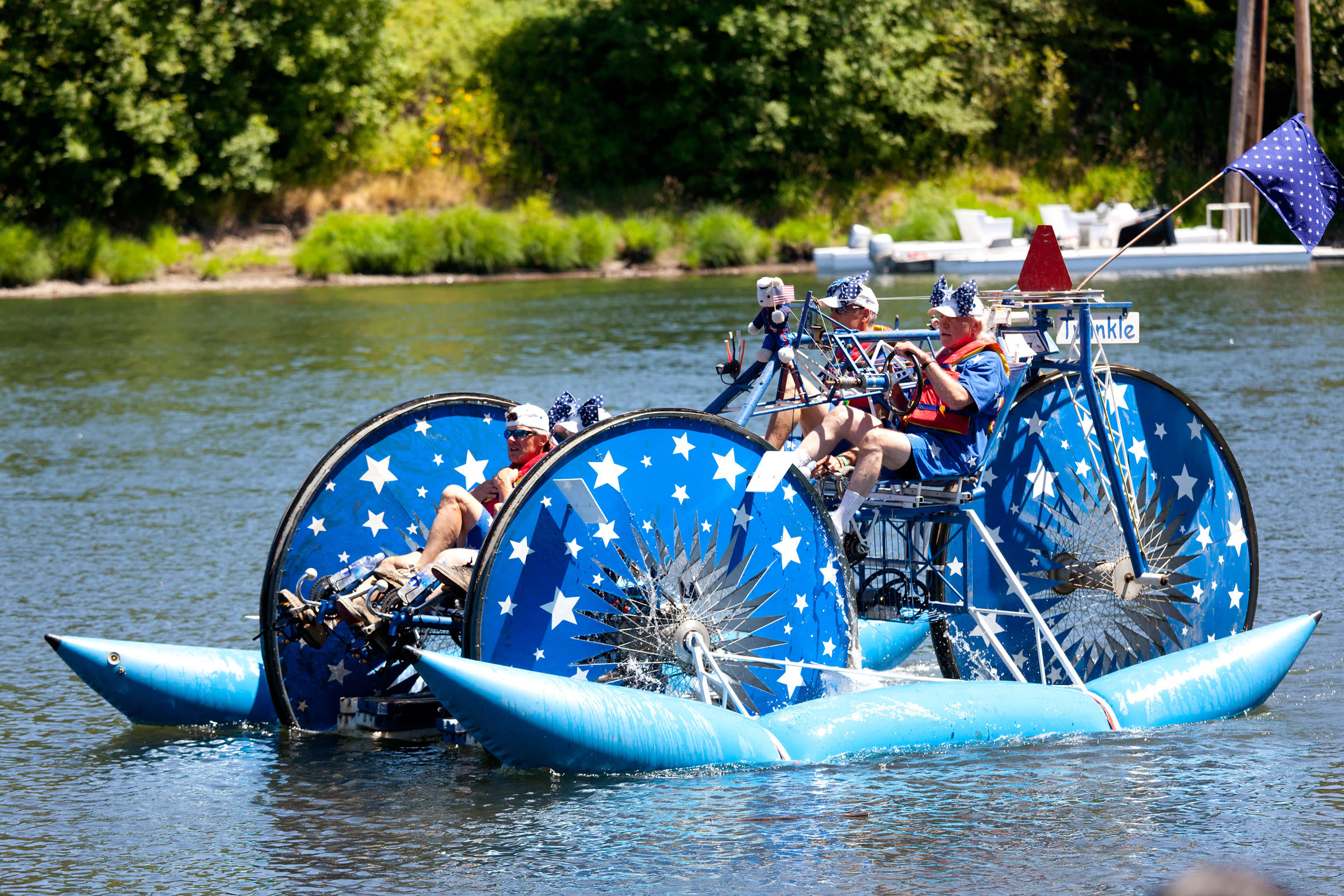
This Sand Is Our Sand: Why Oregon's Beaches Belong to Everyone
When I was 20 years old, I nearly turned criminal in New Jersey. I was getting ready to walk out on the beach in Brigantine, just north of Atlantic City—a public beach—when a city employee guarding the sands told me I’d get a ticket if I went out there without a beach badge. A beach badge, my East Coast companions quickly explained to me, was a little plastic tag pinned to your bathing suit to show you’d paid a user fee. I laughed, declared I would never pay to go on to a public beach, and walked toward the ocean. A cousin pulled me back, certain my defiance would get me cuffed.
Just as well. No judge would have liked my plea: not guilty by reason of being Oregonian. I grew up outside of Portland, and vacations often meant Lincoln City or Cannon Beach, where I walked for miles without a thought of ever running into a fence or a “No Trespassing” sign or someone charging me admission. It had never occurred to me to ask why Oregonians took all this for granted and considered access to beaches an essential right.
This summer, the state marks the 50th anniversary of the singular event that explains why we feel this way. Oregonians may think public beaches came to them through some divine blessing. The real story is grittier. It took a couple of bold governors, an outraged public, and the hubris of a motel owner to show everyone what was at risk.
In the summer of 1966, the owner of the Surfsand Motel in Cannon Beach staked out the beachfront just outside his doors and barred anyone but paying guests. The Oregon State Highway Department, which then had jurisdiction over beaches, sent an investigator. He found a driftwood barrier, and signs that read “Surfsand Guests Only Please.” When the investigator inquired, the manager turned testy. The motel, she insisted, did indeed own that section of beach.
Oregonians had reason to see that claim as bogus. The state’s collective view of the beach as a birthright reached back to Oswald West, a Democratic reformer who—despite Republican political dominance—won one term as governor, from 1911 to 1915. West didn’t like that the state had already sold off some tidelands, so he persuaded lawmakers to declare the entire beach a public highway. Decades later, West claimed his real motive was to protect the beach from speculators, but that he’d hidden his intentions from a hostile legislature.
But in 1966, the Surfsand’s claim to own its patch of beach might not have been all wrong. The 1913 law and a 1947 rewrite gave the state ownership of the beach to the mean high tide line—in other words, the wet sands. Some landowners had been granted title for—and paid property taxes on—stretches of dry sands.
But the public didn’t see a difference; Oregonians generally assumed the whole beach belonged to everyone. The dispute at the Surfsand created a political problem for the state: how do you explain to a beach-loving public that much of the beach isn’t actually, well, public? Solution: You don’t—you just quietly grab the rest.
In February 1967, the Highway Department put forward House Bill 1601, a proposal to shift state ownership from the tide’s edge to the brambles and weeds of the vegetation line. The agency argued that the public had enjoyed unfettered use of the entire beach for years, and had the right to claim it all.
But in a practical sense, declaring the grass as a legal property line made as little sense as the existing law’s reliance on a tide table. The Republicans in charge of the House at the time stopped the bill, branding it an outrageous overreach of government power. Nor did it help that the bill would have killed a Lincoln City condo project backed by a former GOP state party chairman. The idea looked dead. But then another governor stepped in.
Tom McCall was not yet the Oregon icon he would become—not even close. The 54-year-old product of both rural Prineville and patrician Massachusetts had been governor only a few months, and remained untested, uncertain, and a bit antic. He also didn’t like how his fellow Republicans in the legislature—who considered him a political lightweight—ignored him whenever they could. But he was popular, something of a celebrity after years as a Portland-based TV news commentator, and he knew his repeated message that he was determined to defend the state’s environment and livability resonated with Oregonians. He’d barely paid any attention to beach protection, but in the Republicans’ resistance to what people now called the “Beach Bill,” he found the necessary elements for political change: need and opportunity.
McCall didn’t bother to negotiate, and instead went straight to the public to denounce inaction on the bill and demand the legislature protect the beaches from “crass commercialism.”
“When Tom did that, holy cow,” the House Speaker at the time later told me, “the lid blew off.”
Within days, the story dominated the news. On one dramatic Saturday, McCall personally took a survey team to the beach and staked out the claim for public ownership. Thousands of letters demanding action poured into the Oregon State Capitol. Today, you can delete thousands of e-mails or ignore thousands of tweets. But in 1967, legislators found it difficult to focus on other business when bags of mail covered their desks.
Lawmakers rushed to approve the Beach Bill—with a few key changes. They used McCall’s preferred survey line as a boundary and established zoning rules to stop development of the beach. The final bill did contain language that allowed that ex-GOP boss to build his condos—the Inn at Spanish Head, in fact, where I later vacationed as a kid. (Not even landmark legislation is entirely pure.) Legal battles with the Surfsand Motel owner ensued, but the Oregon Supreme Court unanimously upheld the law.
The Beach Bill changed more than the legal definition of the coastal sands. McCall gained his first win toward what would become his legacy: protecting Oregon by cleaning up its rivers, controlling growth through land-use planning, promoting energy conservation, and helping to secure the 1971 Bottle Bill that put the state at the forefront of the era’s national environmental policy. Republicans never forgave him for the shaming. But McCall showed public sentiment can be more powerful than partisanship when it comes to what Oregonians value.
Nothing lasts forever, especially in politics. Winds blow, sands drift. But the Beach Bill, and the collective will it represents, marked a rare moment in the state’s history when the political touched the eternal. If you doubt that, go take a long walk on the beach. It feels like forever. In Oregon, nothing else comes close.
Top Image: In 1967, Gov. Tom McCall casts a gimlet eye at Cannon Beach's Surfsand Motel, which attempted to claim a swatch of beach.
(Photograph courtesy the Oregonian)







